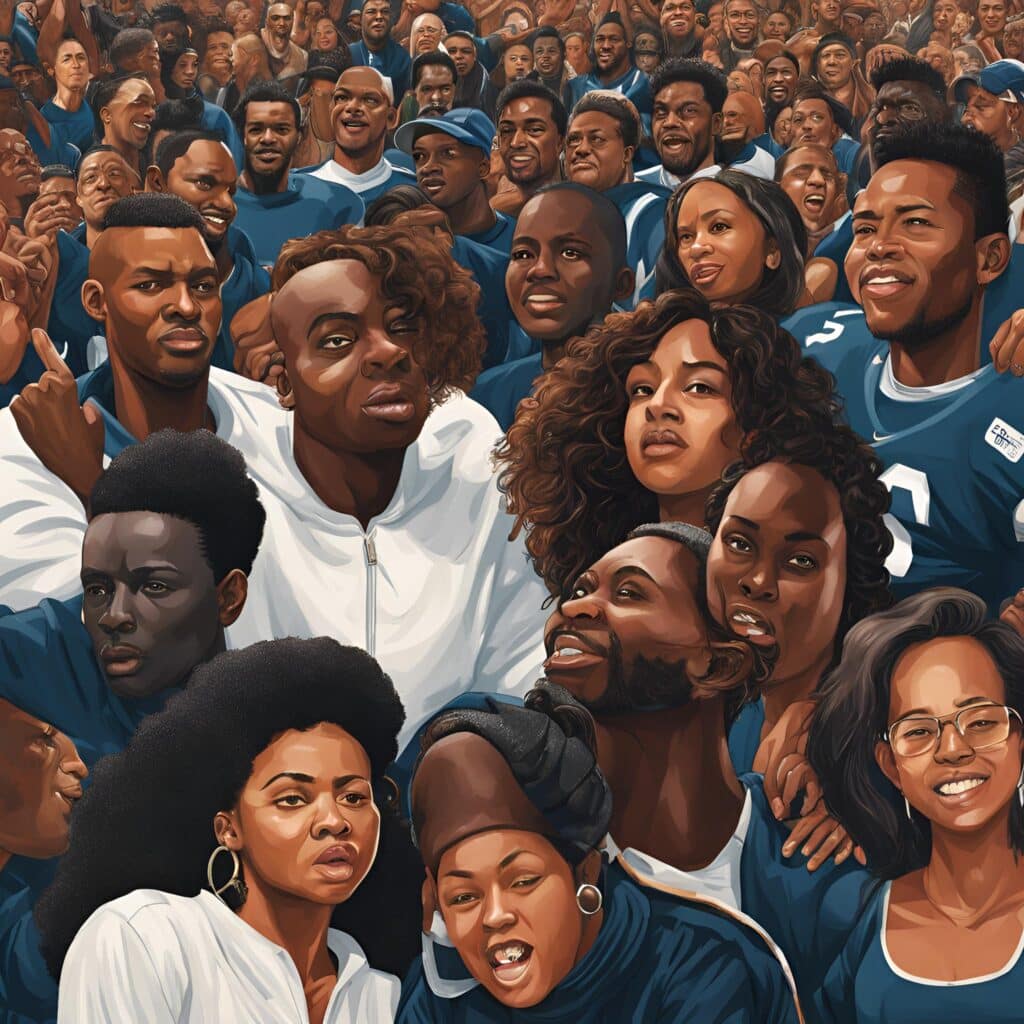The preference among many Black football fans for supporting European clubs and leagues over their domestic counterparts is a phenomenon with complex roots. This trend is not only a reflection of global football dynamics but also a testament to various social, economic, and cultural factors that shape fan loyalties. Understanding why European football clubs often capture the allegiance of Black fans involves examining historical, cultural, and economic influences that have contributed to this preference.

Historically, European football has enjoyed a long-standing tradition of excellence and global appeal. European leagues, particularly the English Premier League, La Liga, and Serie A, have established themselves as the pinnacle of club football, showcasing world-class talent and high-level competition. For many Black fans, the allure of watching elite players from around the world and experiencing the drama of top-tier football creates a compelling reason to support these clubs. The international success and visibility of European teams often overshadow domestic leagues, which may not have the same level of global recognition or investment.
Economic factors also play a significant role in this preference. European clubs typically have larger budgets, allowing them to attract and retain top talent, build state-of-the-art facilities, and offer competitive wages. This financial muscle translates into more exciting and high-quality football, which can be more appealing to fans who are used to watching the world’s best players in action. In contrast, many domestic leagues in Black-majority countries face financial constraints, which can limit the overall quality of the competition and reduce their attractiveness to fans seeking top-tier football experiences.

Cultural factors further contribute to this phenomenon. The global reach of European football has made it a part of popular culture worldwide, with extensive media coverage, merchandise, and fan engagement. For many Black fans, especially those living in countries where European football is heavily promoted, supporting European clubs has become a cultural norm. The widespread visibility and marketing of European teams create a strong emotional connection, often surpassing the local club loyalty that might exist in their home countries.
Additionally, the historical context of colonialism and globalization has influenced the relationship between Black communities and European football. The colonial legacy has left a lasting impact on various aspects of culture, including sport. European football clubs often serve as a symbol of a broader connection to the Western world, which can be particularly resonant in former colonies or nations with historical ties to Europe. This connection may manifest in a preference for European football as a form of cultural and historical alignment.
Moreover, the role of media and access to football coverage cannot be underestimated. With the rise of digital platforms and global broadcasting, European football has become more accessible than ever before. Many Black fans are exposed to European football through international channels, social media, and streaming services, making it easier to follow and support European clubs. This increased access enhances the appeal of European leagues and strengthens their fan base across the globe.
In conclusion, the preference for European football clubs among many Black fans can be attributed to a blend of historical, economic, cultural, and media influences. The global prestige of European leagues, combined with the financial advantages and cultural impact, has made supporting these clubs more appealing than domestic alternatives. Understanding these dynamics provides insight into the broader context of global football fandom and the factors that shape fan loyalty in a diverse and interconnected world.




